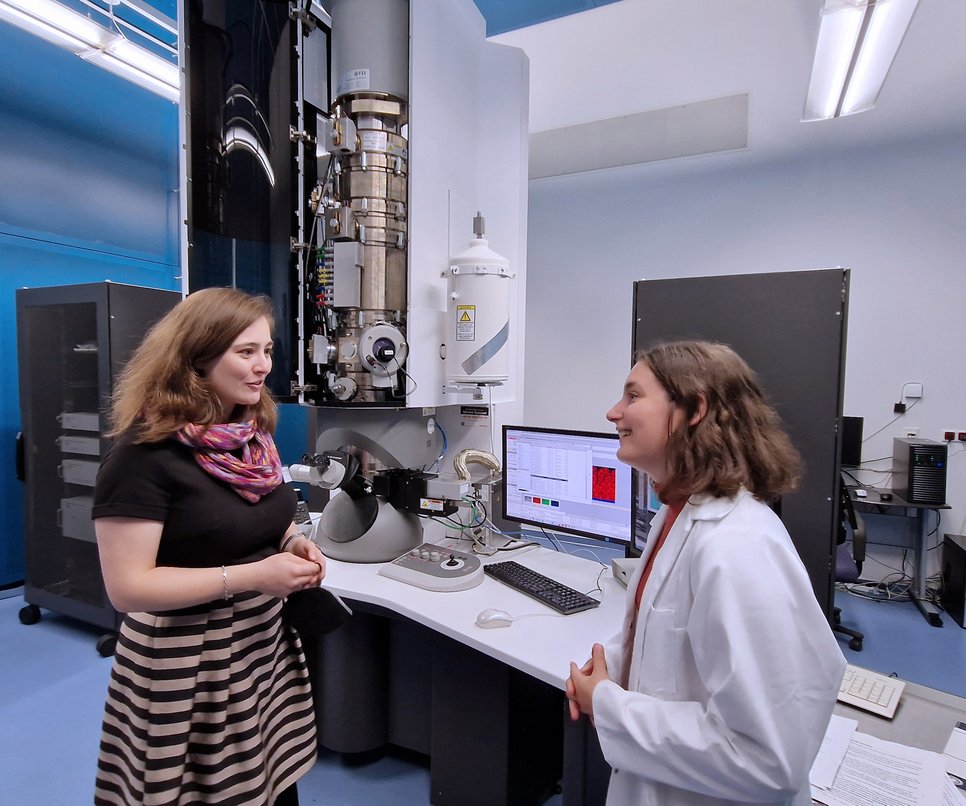Digitalization and green hydrogen: Visit to the MPIE team
Julia Eisentraut, member of the state parliament of North Rhine-Westphalia, explores the laboratories of the Max-Planck-Institut für Eisenforschung
Research at the Max-Planck-Institut für Eisenforschung (MPIE) is closer than ever to current technological and economic challenges. Speaking about CO2 reduction, circular economy or digitalization - all these and many other topics need sustainable and cost-effective materials and process routes. Julia Eisentraut, member of the state parliament of North Rhine-Westphalia and spokesperson for science and digitalization for the state parliamentary group of BÜNDNIS 90/DIE GRÜNEN, was impressed during her visit to the MPIE on Thursday, 13 October 2022: "Many technologies that we will use in the future will be made from new or modern materials. Tomorrow's innovations, for example in mobility, energy supply or medicine, depend on basic research at the Max-Planck-Institut für Eisenforschung. With a strong, interdisciplinary team, the institute is paving the way for numerous future technologies."

The tour through some of the institute's laboratories included an electron microscopy laboratory, where scientists are investigating new catalysts for the efficient production of green hydrogen. Also, the institute's work on federally funded projects, namely “MaterialDigital” and “NFDI MatWerk” to digitize materials science, was presented. The goal of these projects is to establish a nationwide research data infrastructure for materials science and engineering. This avoids parallel work on similar challenges, saving time and money. "We are working here on new materials and technologies with enormous leverage. We have, for example, projects to produce steel with hydrogen - the sustainable production of steel alone would reduce global greenhouse gases by 8%," says Dr. Kai de Weldige, executive at the MPIE.
At the MPIE, people from over 35 countries work on the development of new metallic materials and semiconductors. Their research is relevant to the fields of mobility, energy, infrastructure, medicine and digitalization. In addition to positions for students and scientists, the institute also offers six apprenticeships.
Author: Yasmin Ahmed Salem
